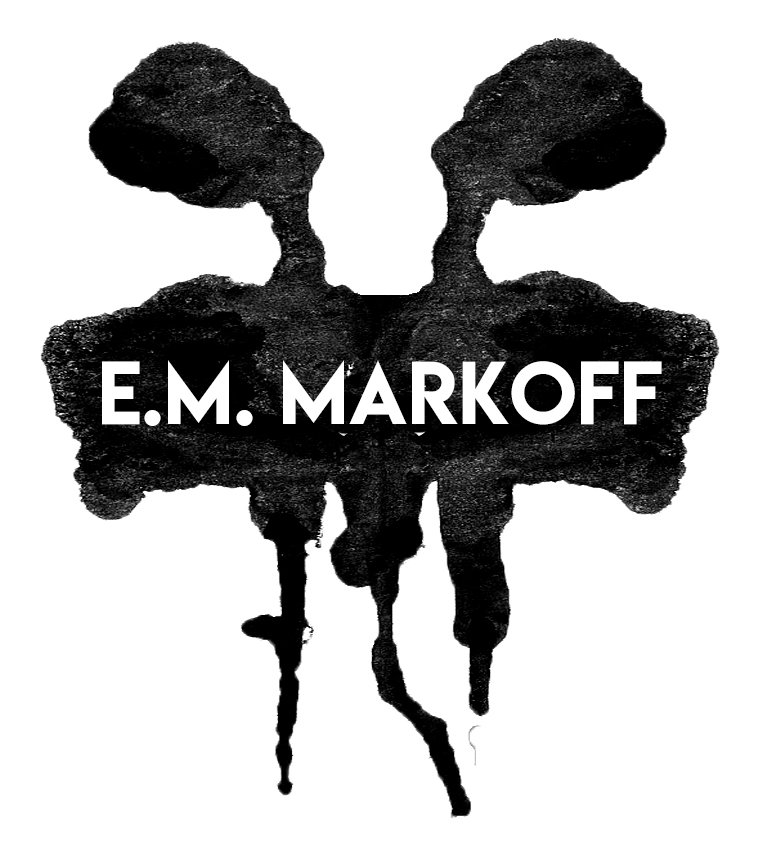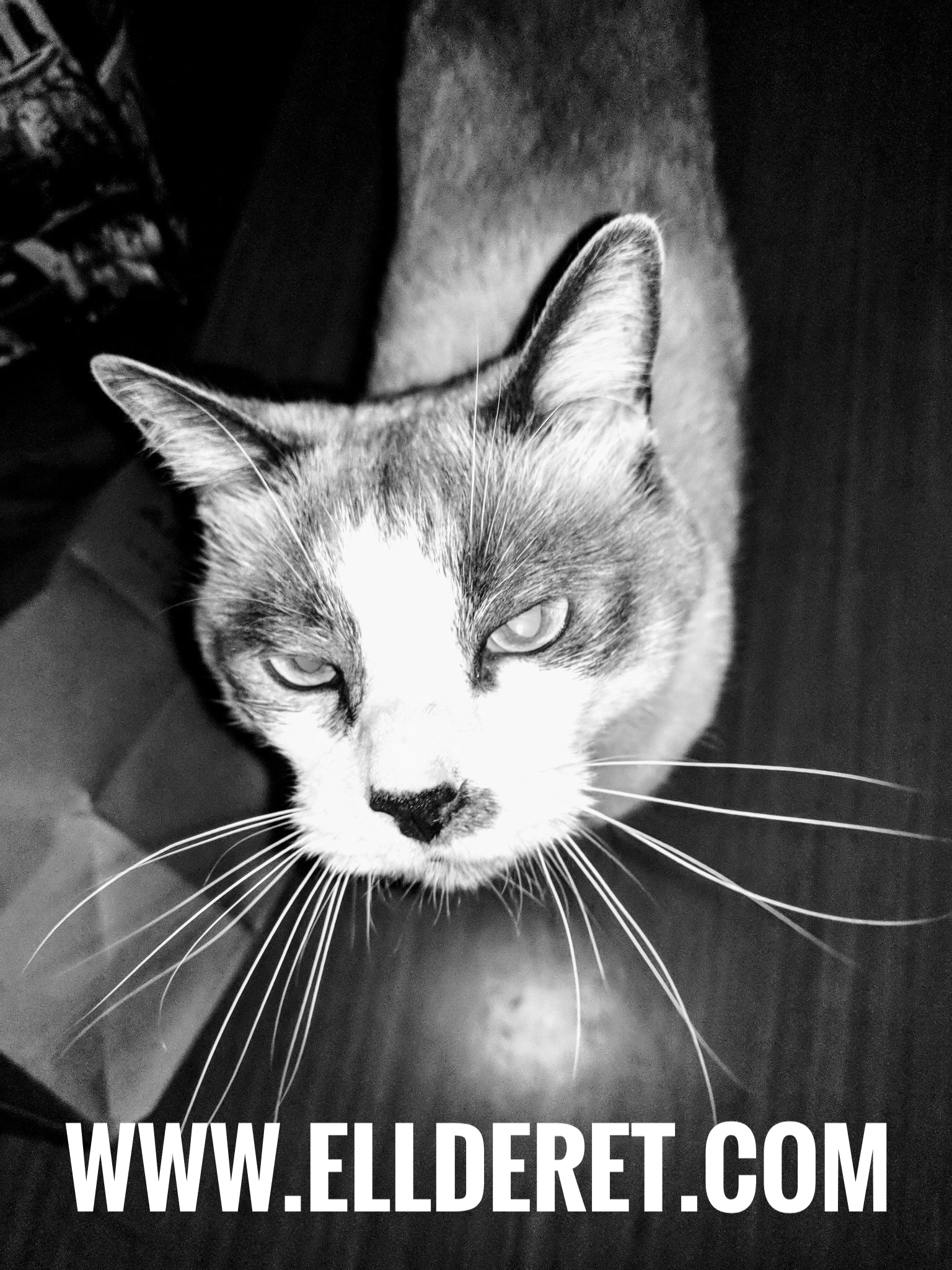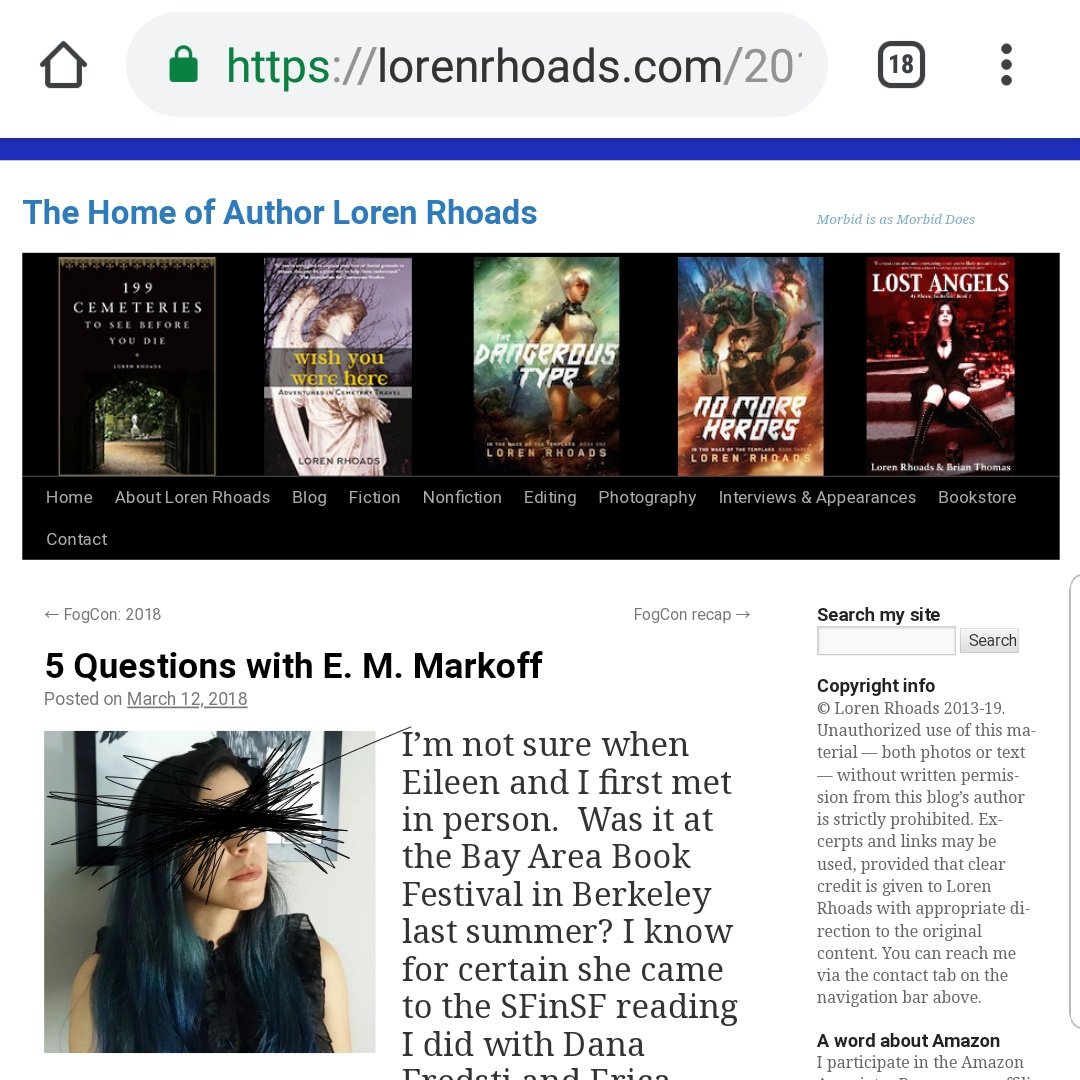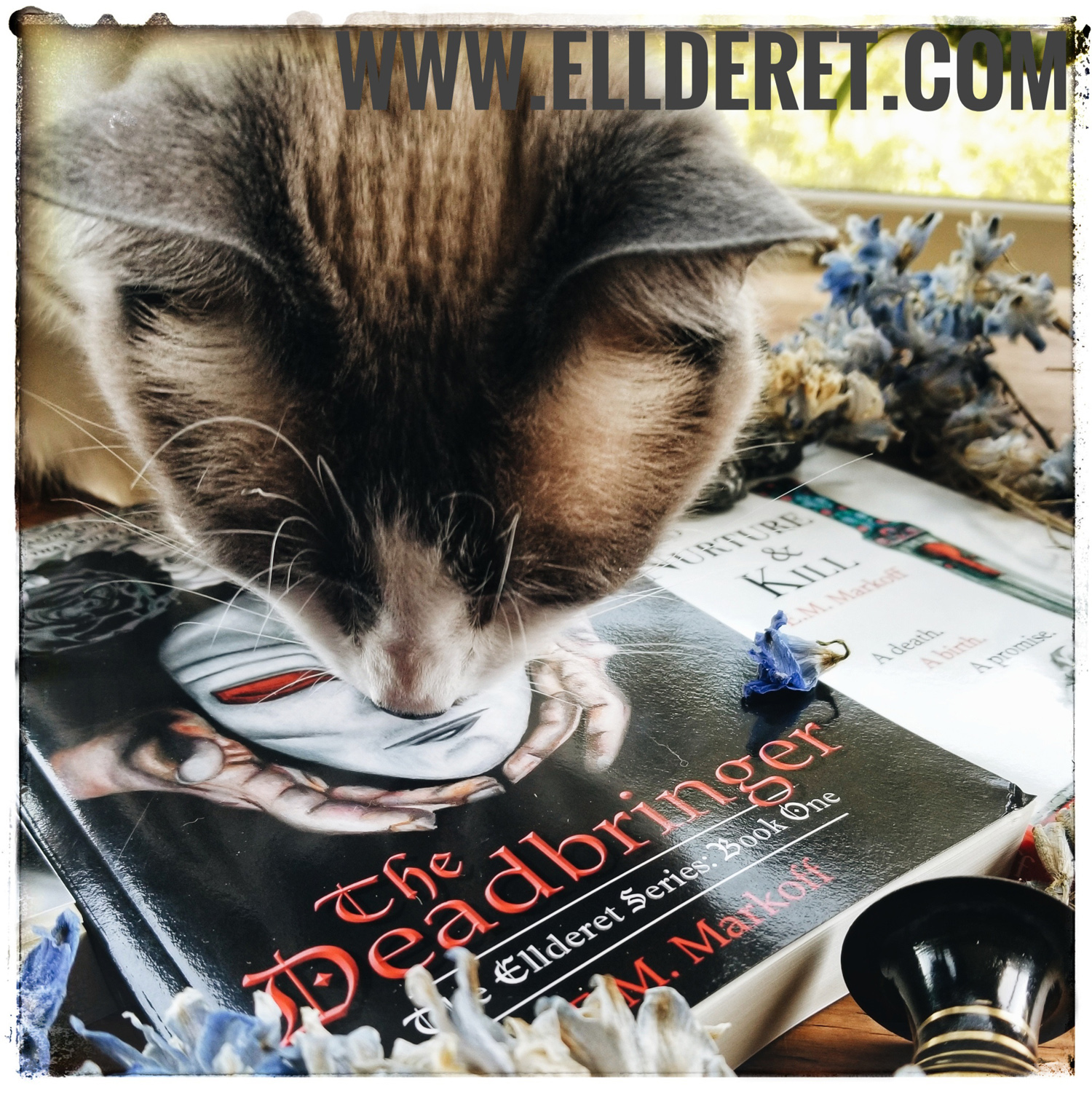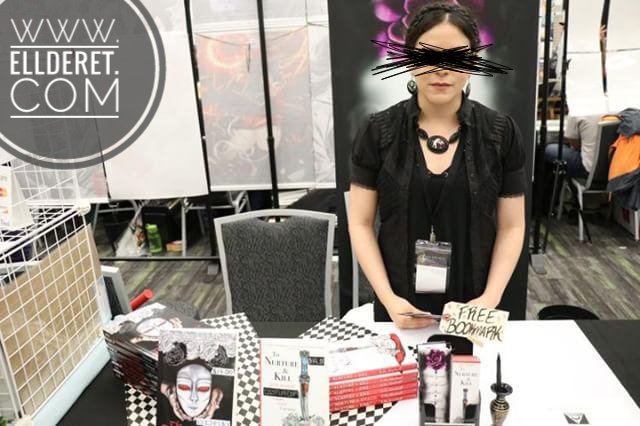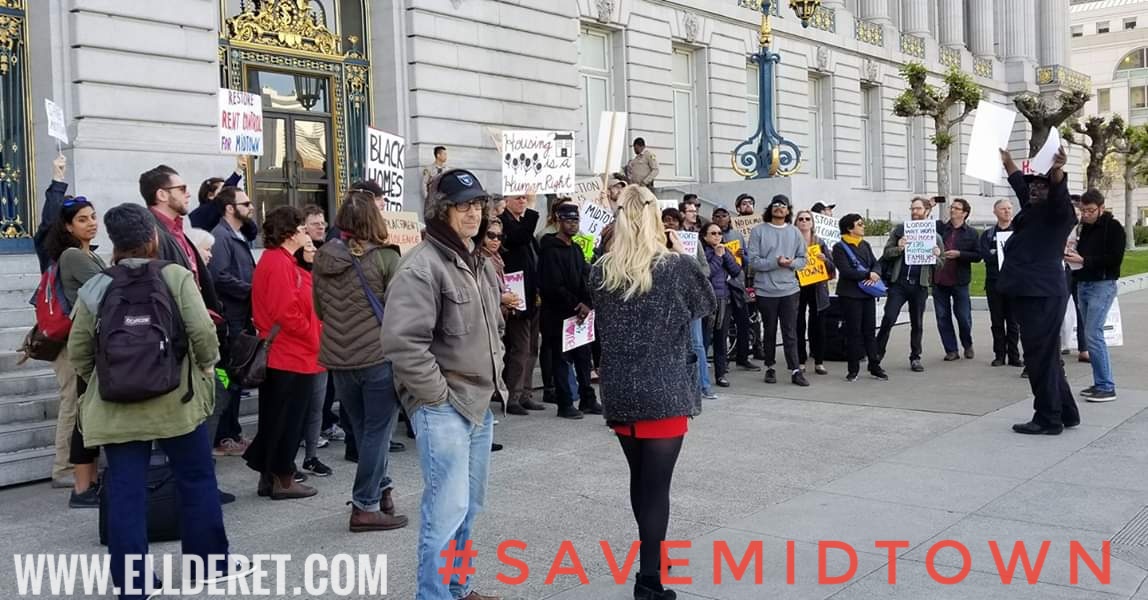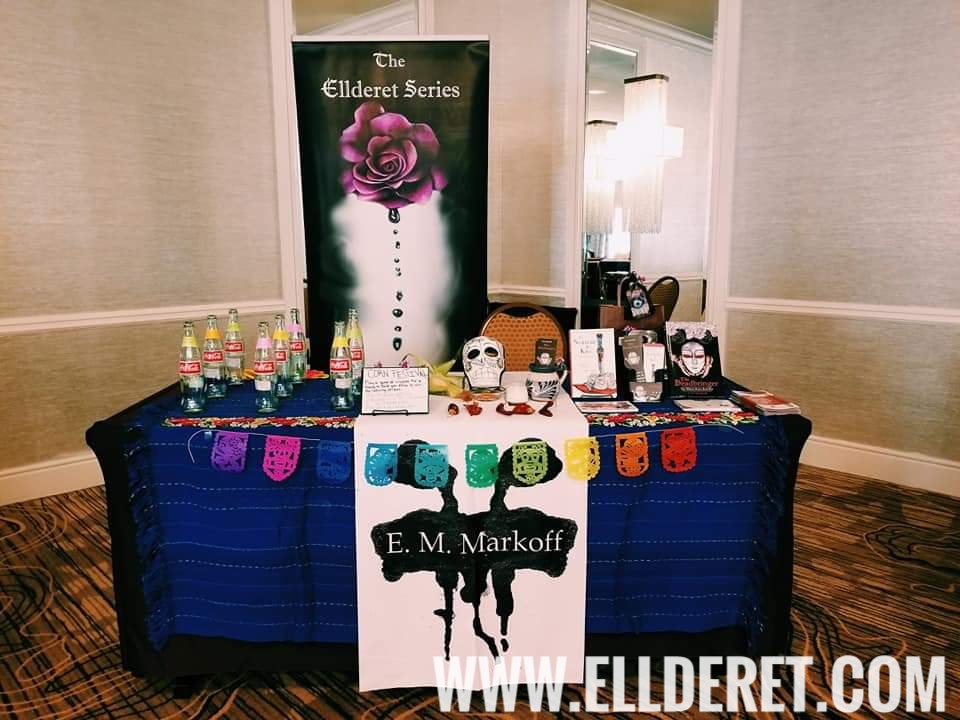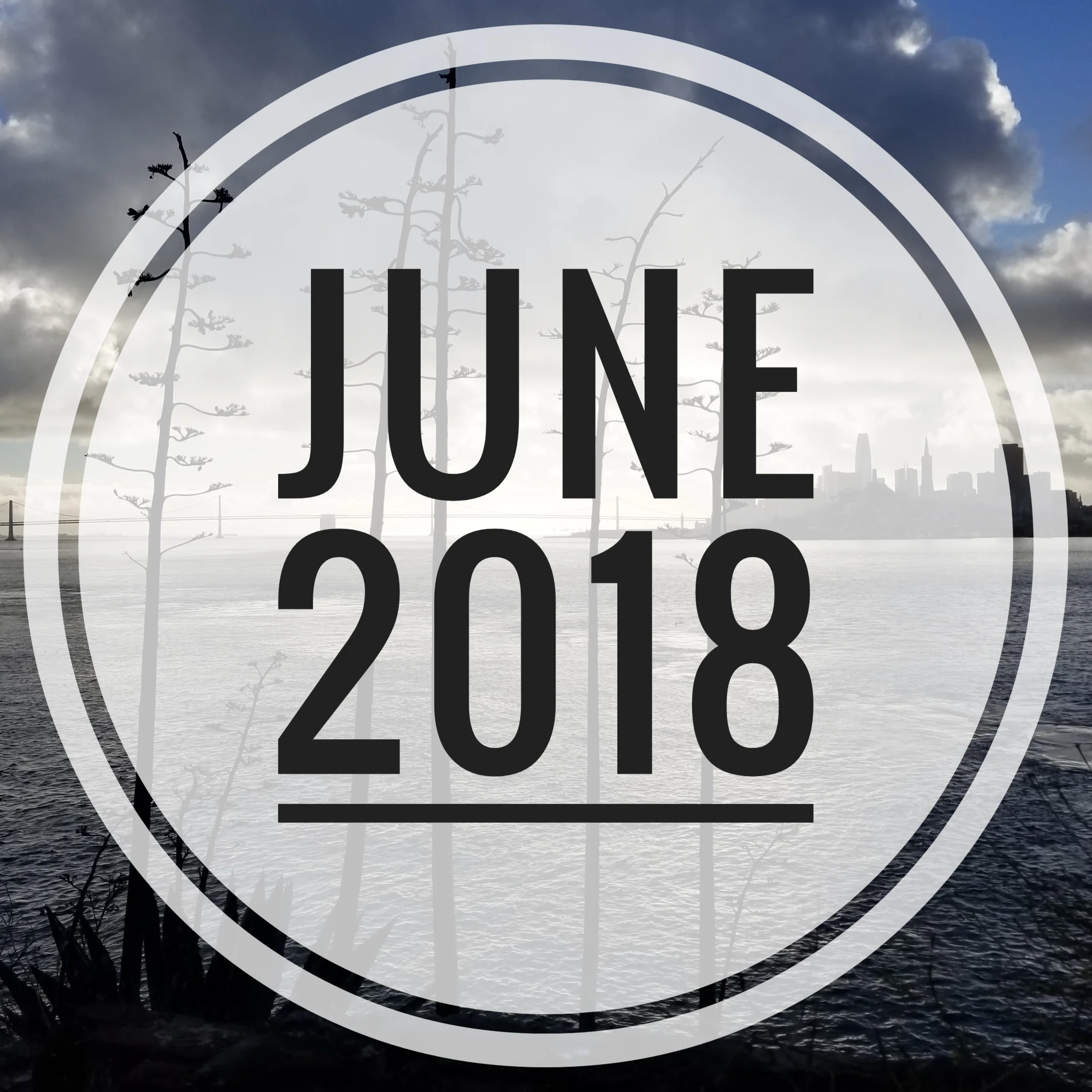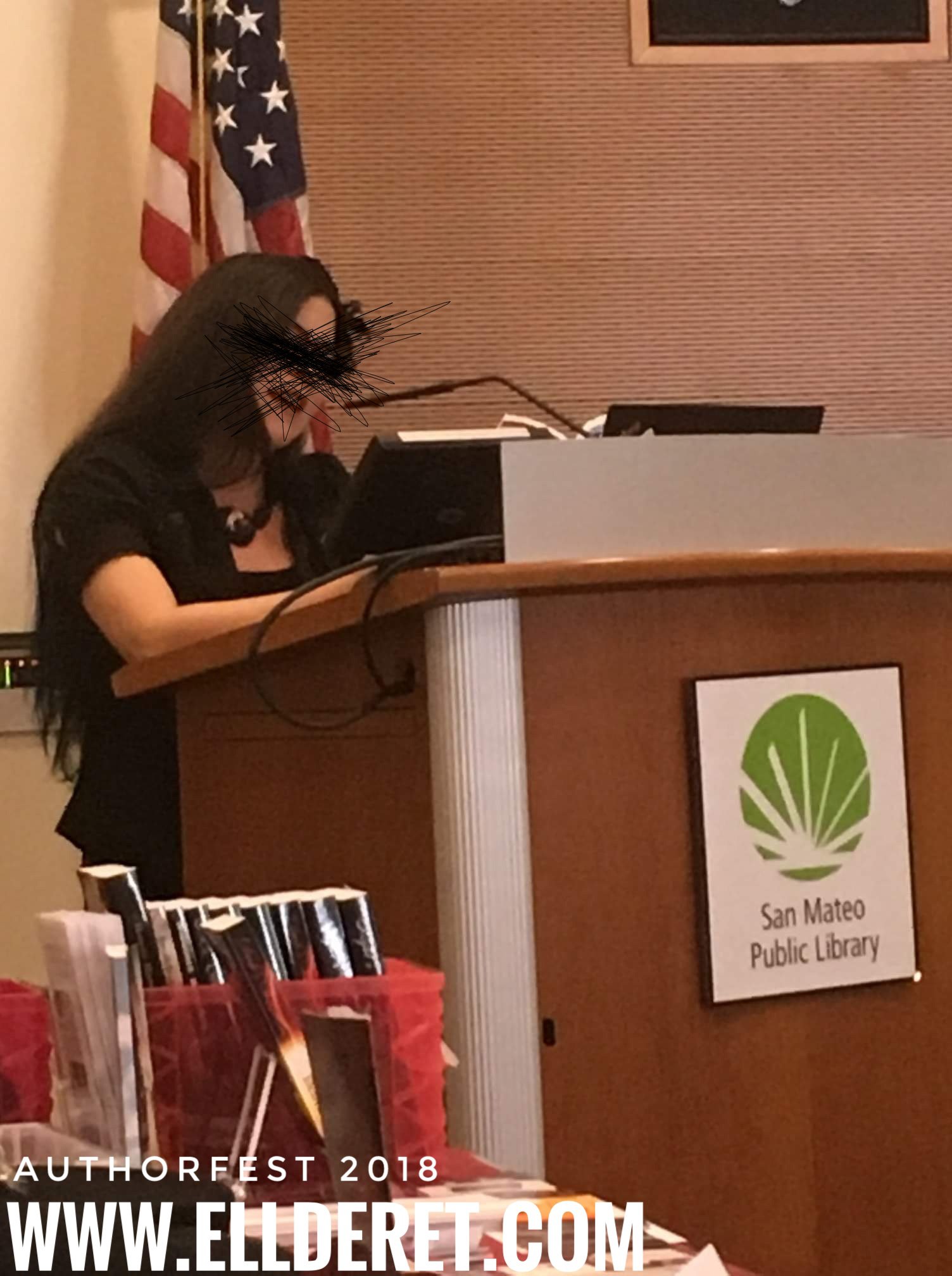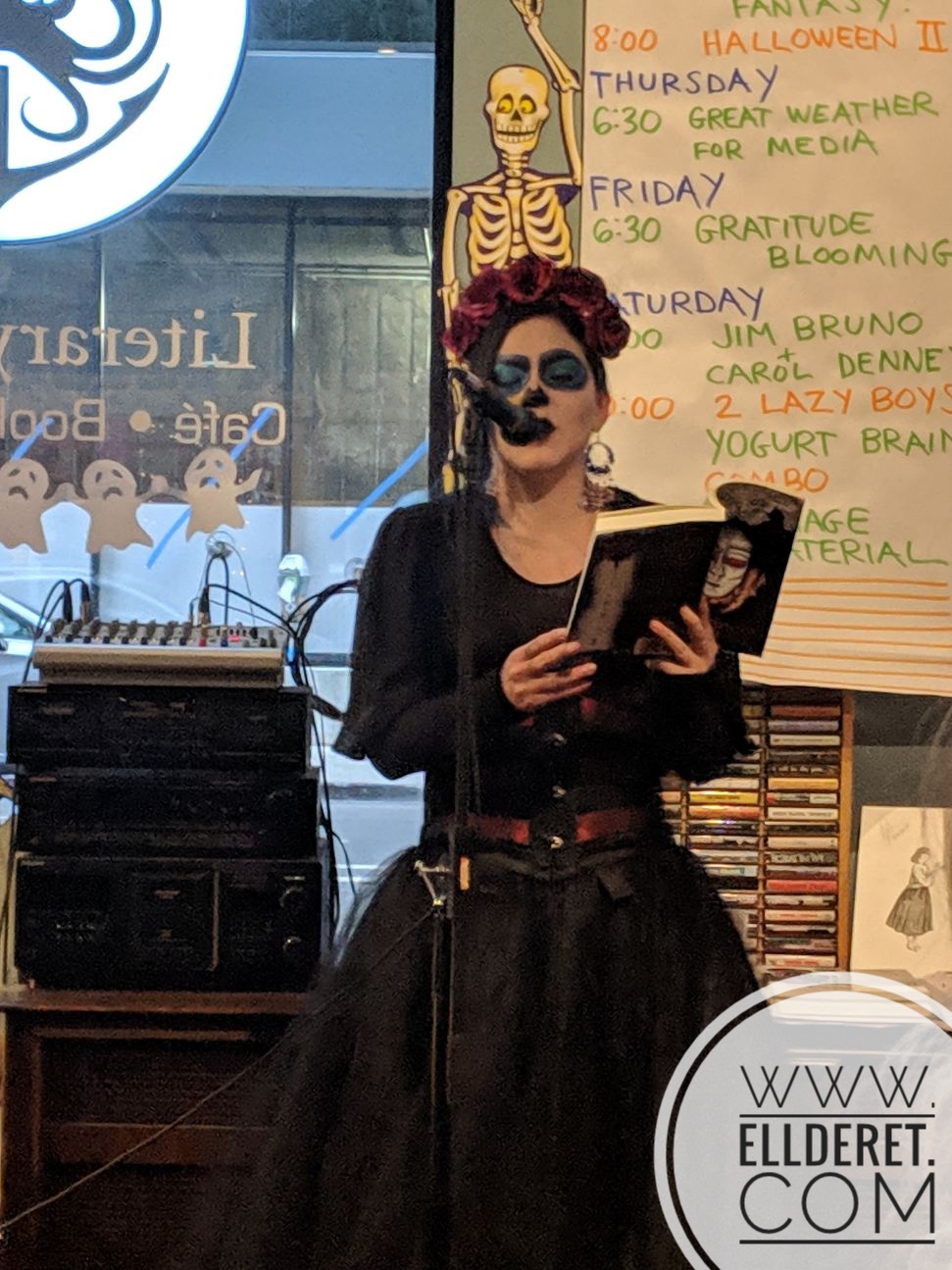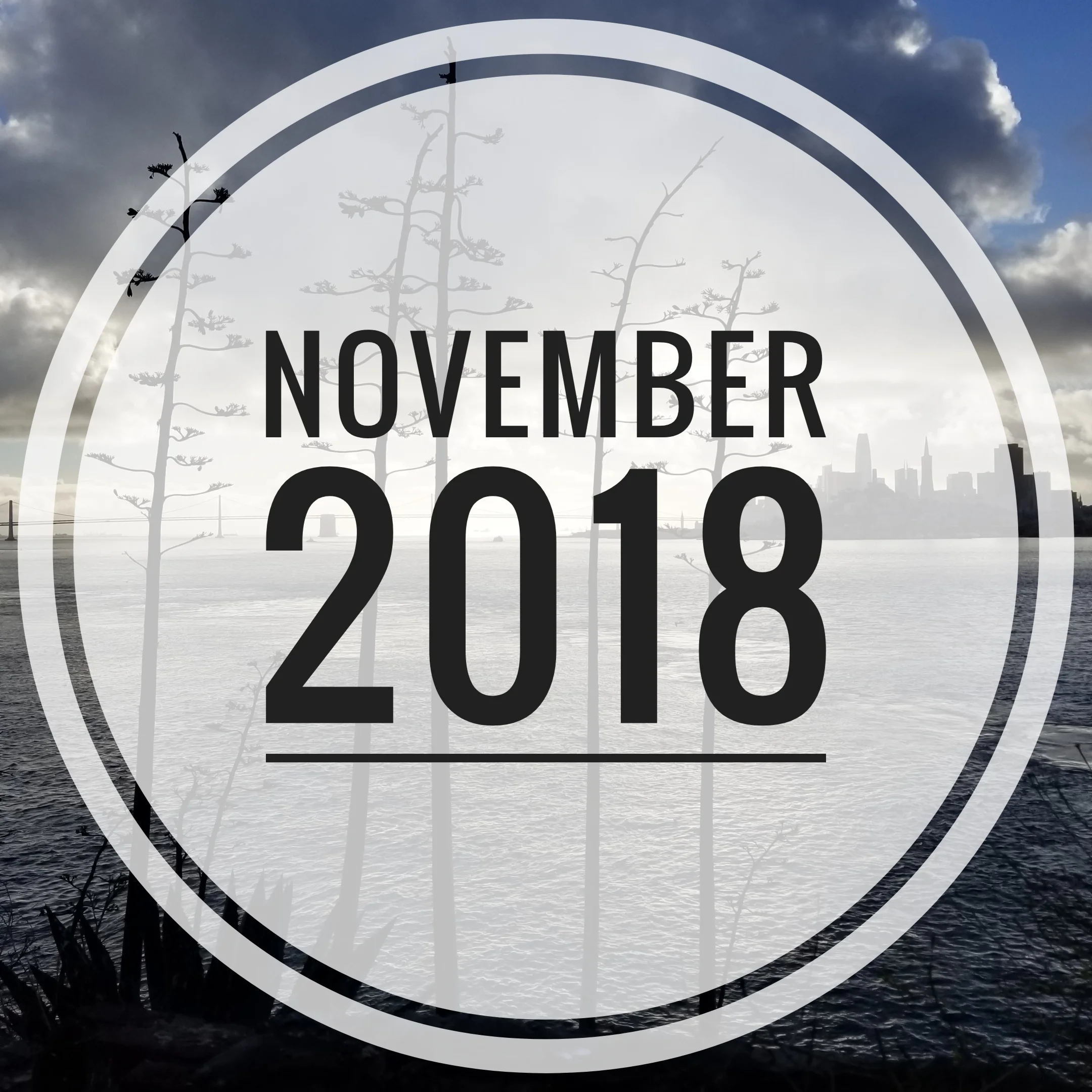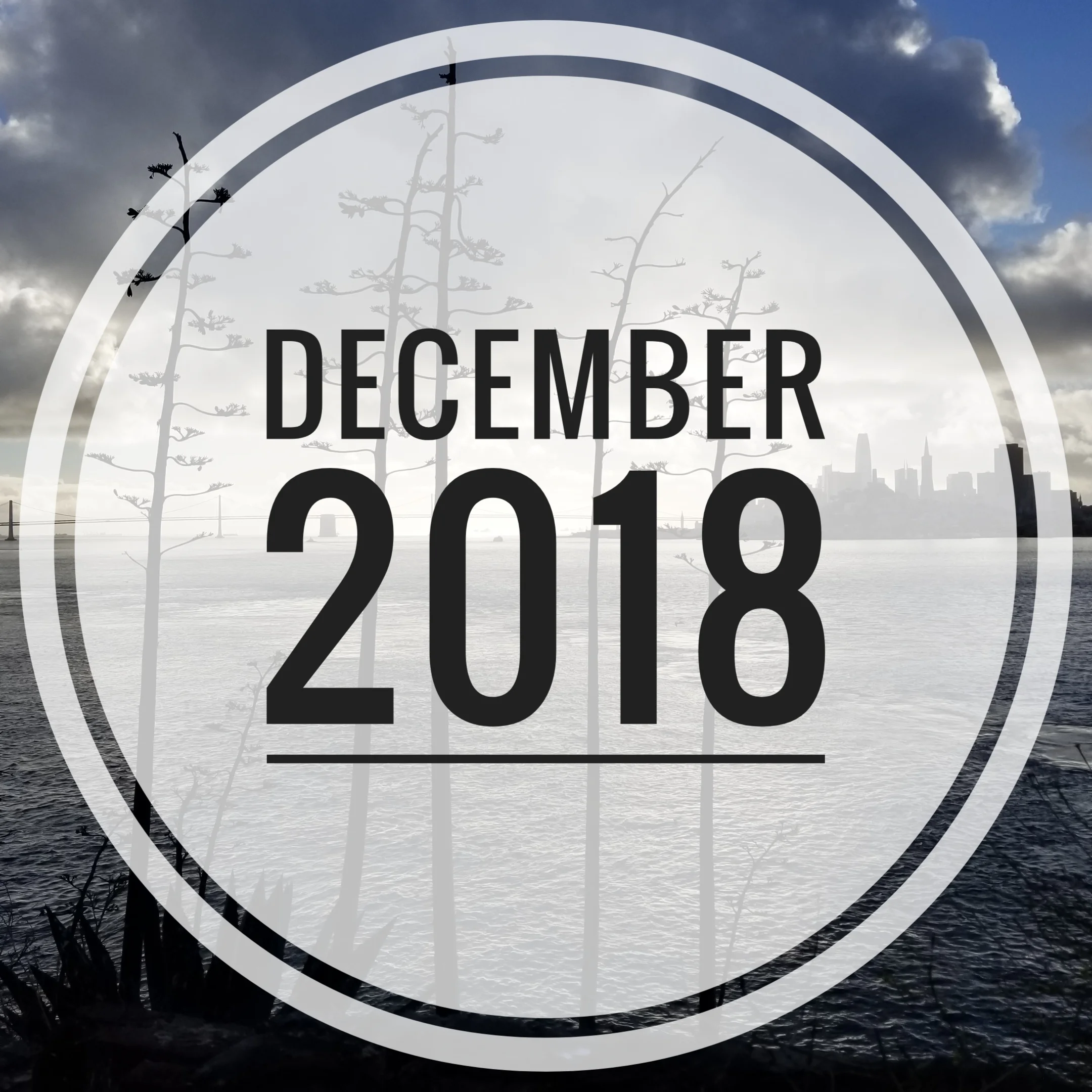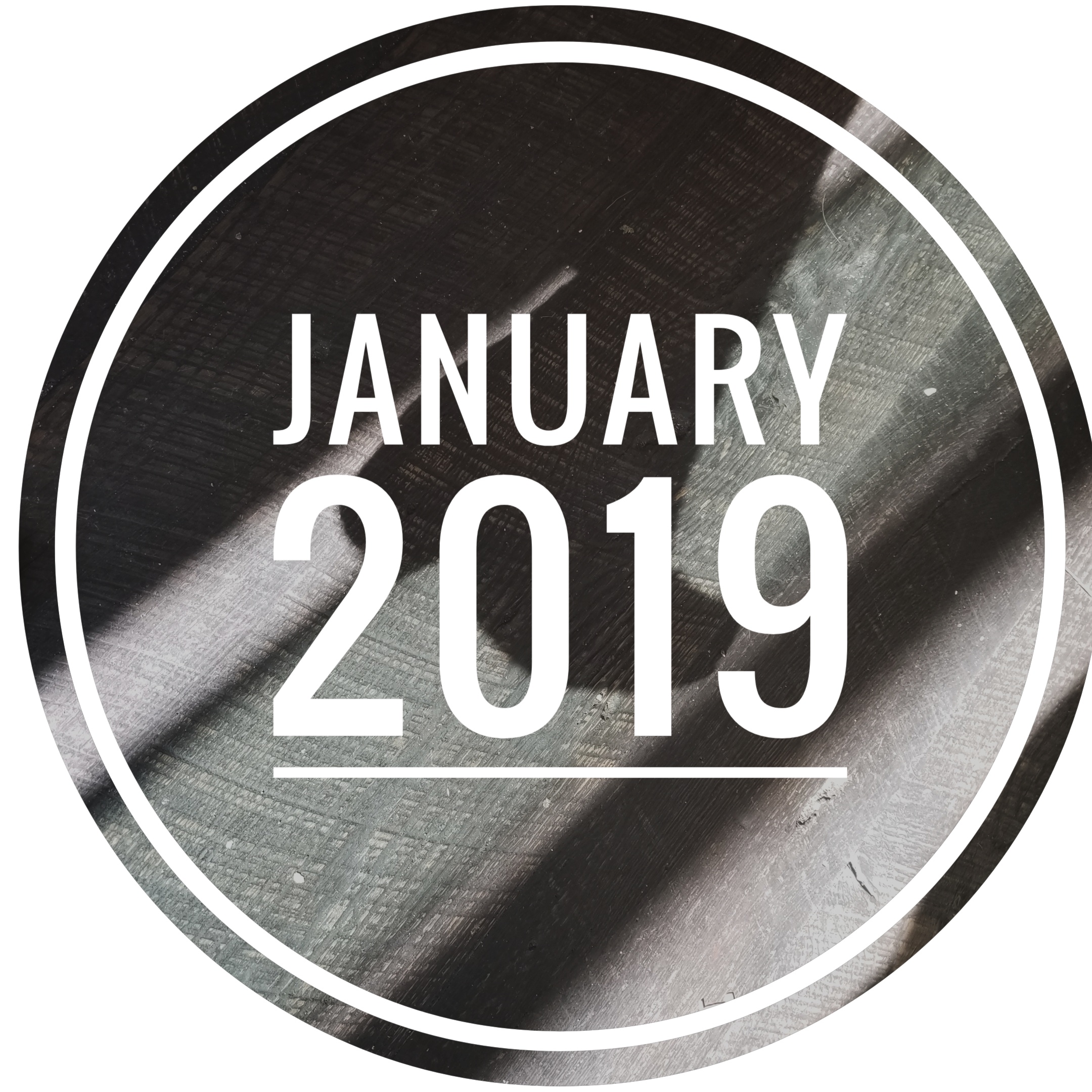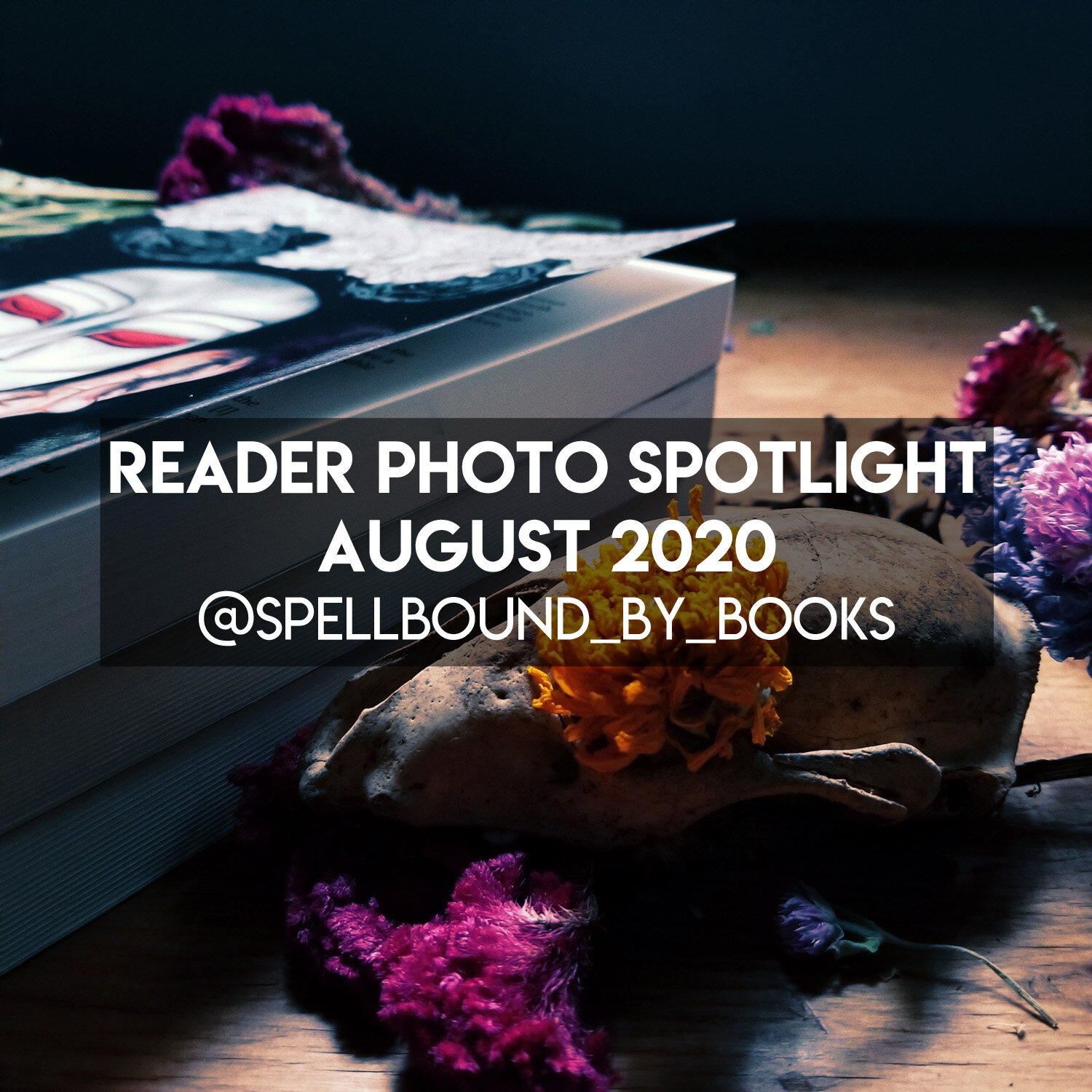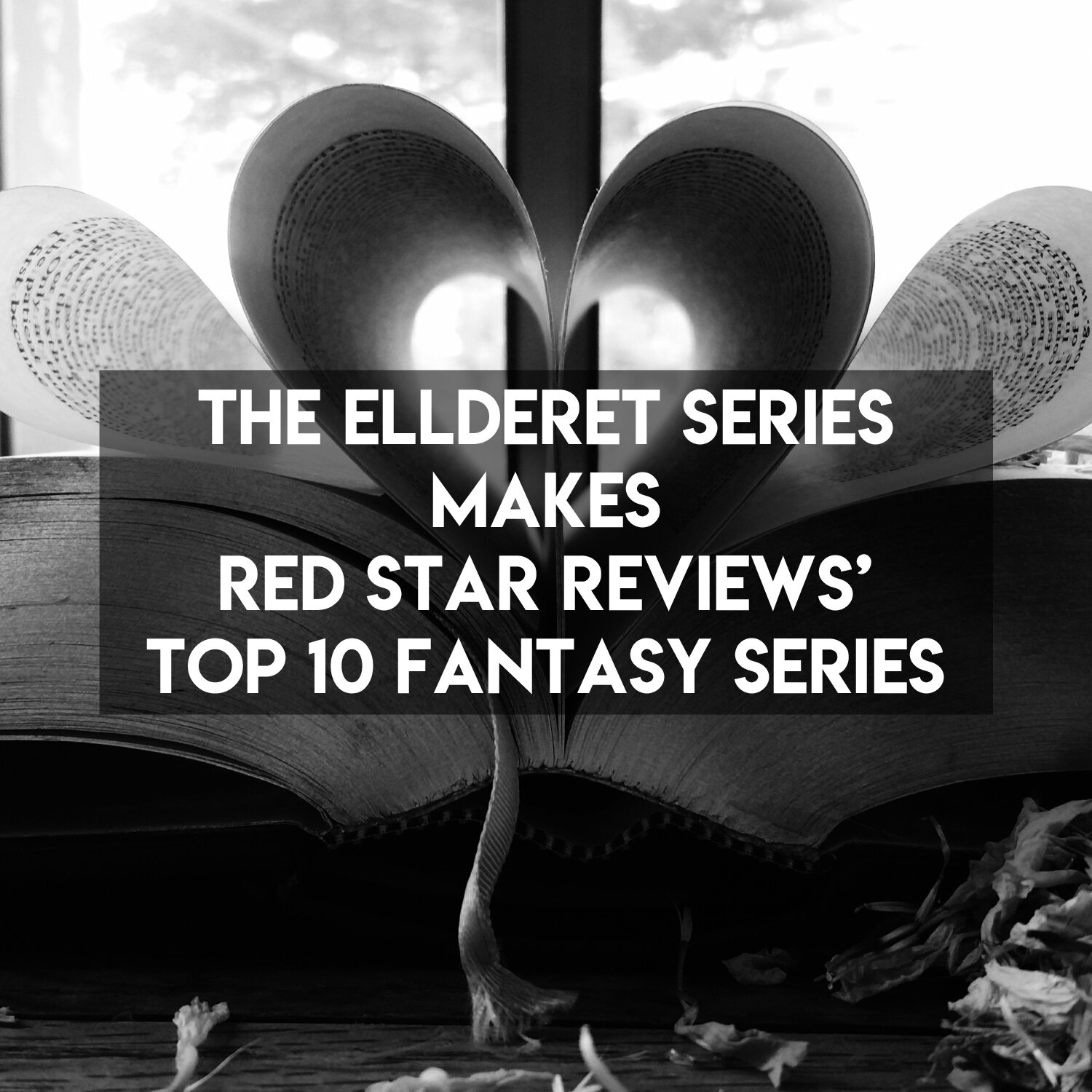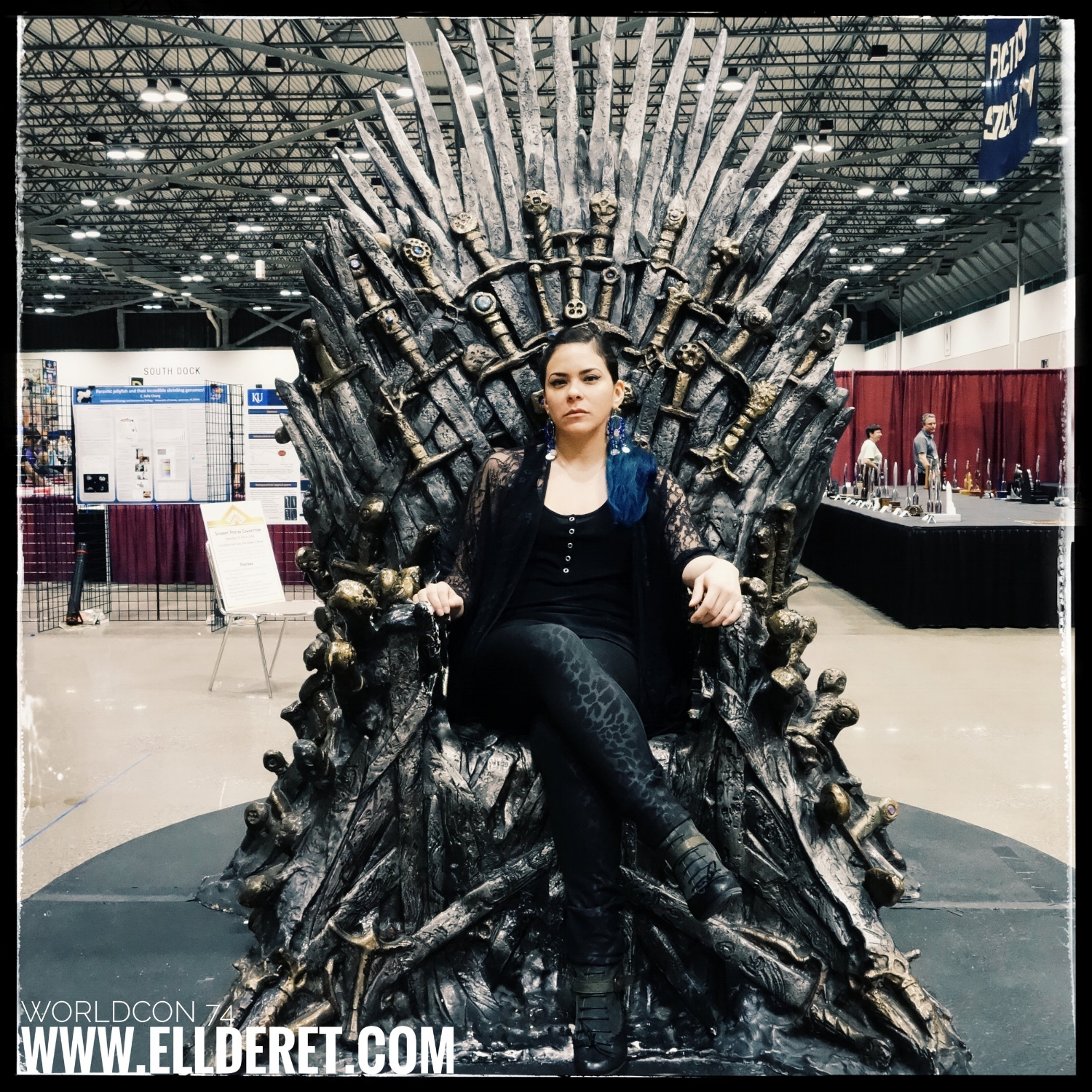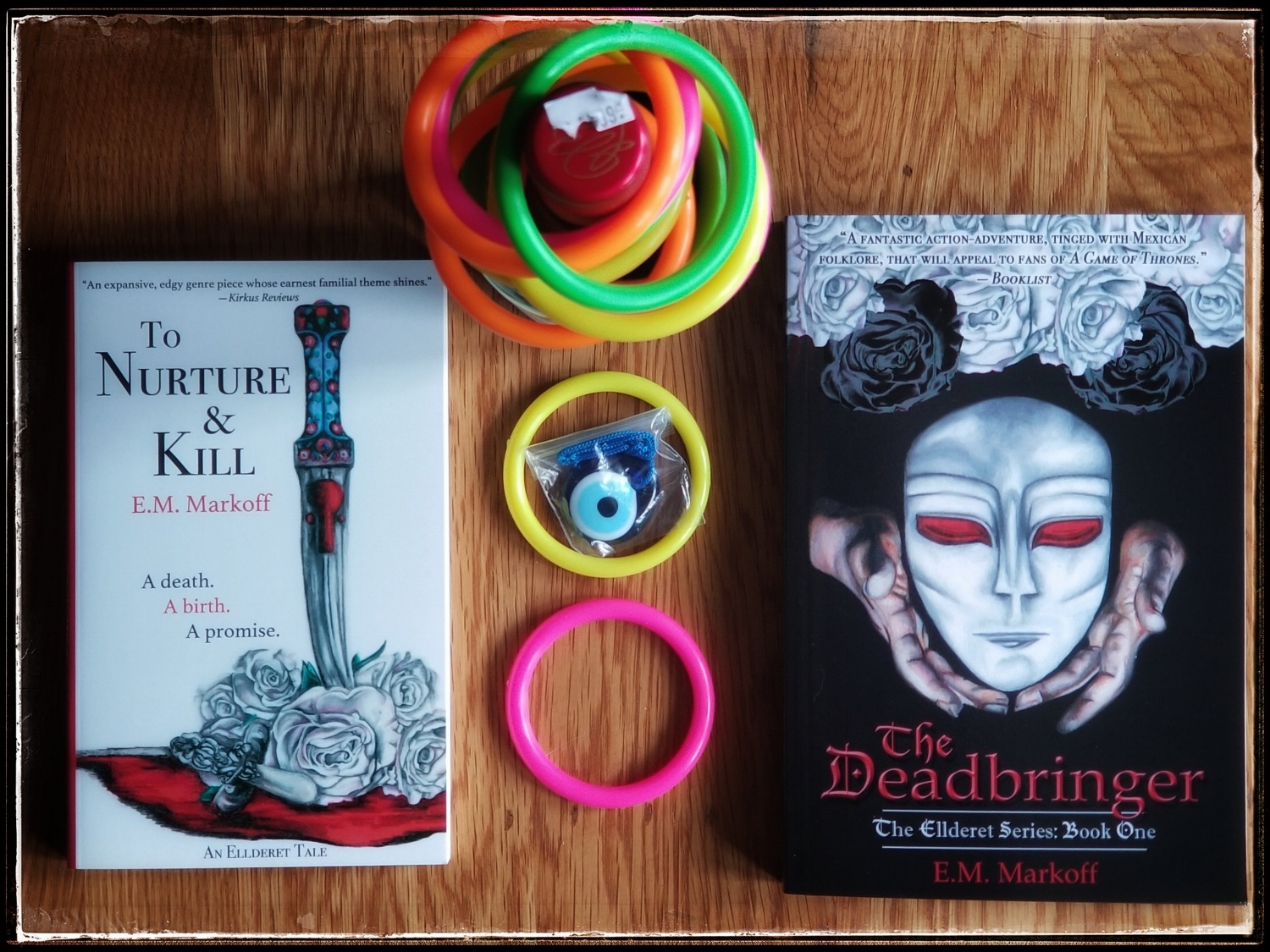#Writerslife 2018 Year In Review
Happy New Year 2019, everyone! “Que salga lo viejo y entra lo nuevo,” or “Out with old, in with the new.” I welcomed 2018 with those words, and with a pot of water tossed out the front door. I met many wonderful authors and artists in 2018 …
Happy New Year 2019, everyone!
“Que salga lo viejo y entra lo nuevo,” or “Out with the old, in with the new.” I welcomed 2018 with those words, and with a pot of water tossed out the front door. I met many wonderful authors and artists in 2018.
Here’s my #writerslife 2018 year in review. If you want to get the full story behind the pictures, click on the image and hover over them. For mobile: tap the small white dot on the bottom right of your screen to enable the text.
Indie Publishing, Death in Mexican Culture, The World Of The Ellderet | Unreliable Narrators Podcast
Welcome back! Today, I want to share a podcast interview I did with the wonderful folks over at Unreliable Narrators, a few of whom I had the opportunity to meet at Fogcon 8. They asked some great questions that touched upon the premise behind The Ellderet Series, my literary influences, the pluses and minuses of being an indie author, the very important role my culture plays in my works, and if I have ever been stereotyped because I am a woman. Spoiler: yes.
Welcome back! Today, I want to share a podcast interview I did with the wonderful folks over at Unreliable Narrators, a few of whom I had the opportunity to meet at Fogcon 8. They asked some great questions that touched upon the premise behind The Ellderet Series, my literary influences, the pluses and minuses of being an indie author, the very important role my culture plays in my works, and if I have ever been stereotyped because I am a woman. Spoiler: yes.
We also talked about Roger Corman’s The Pit and The Pendulum, the various Dracula films from Hammer Horror, The Assistant (my cat), the Horror Writers Association, and my thoughts about the Next Generation Indie Book Awards. Please check out the interview :)
One more thing! I got behind on finishing up my blog series on Worldcon 76, but I’m still planning to get that done soon. It’ll probably be more like a goodies wrap-up, because I realized that I already said everything I wanted to say in my own right in the last three blog posts I did on Worldcon. Check those out here!
Worldcon 76: The Personal Responsibility Of Being On A Panel That Addresses Imposter Syndrome & Mental Health
At Worldcon 76, I was fortunate to be a speaker on a panel addressing imposter syndrome. The panel was excellently moderated and touched on a number of points that people with imposter syndrome can use to move forward. Some of the techniques discussed to help "make it to the end credits" included using writing as a cathartic release, viewing your insecurities as monsters that you can conquer, #buildaladder by adding rungs - no matter how small - to help you climb out of your darkness, learn to say "thank you" and to accept praise, or to reward yourself with something positive, like "cake".
Welcome to my "Worldcon 76" series, where I'll be breaking down my time at the world's longest-running science fiction and fantasy convention.
Caveat: I am not a medical professional. What I'm going to talk about reflects my personal experiences and observations.
---------------------
At Worldcon 76, I was fortunate to be a speaker on a panel addressing imposter syndrome. Here's the description of the panel:
IMPOSTER SYNDROME: YOU DO DESERVE TO BE HERE
Imposter syndrome can often feel like being a side character in a horror movie: you know the monster is gonna get you, but you don't know when. Many authors--from just starting out to long-time pros--experience imposter syndrome, especially people who are marginalized. We wonder if we "really" belong; we wonder if everyone else knows we're faking-it-til-making-it; but when will someone call our bluff? Imposter syndrome is common and we can continue our work despite the doubts. So, how do we deal with it? What techniques do you employ to make it to the end credits?
The panel was excellently moderated and touched on a number of points that people with imposter syndrome can use to move forward. Some of the techniques discussed to help "make it to the end credits" included using writing as a cathartic release, viewing your insecurities as monsters that you can conquer, #buildaladder by adding rungs - no matter how small - to help you climb out of your darkness, learn to say "thank you" and to accept praise, or to reward yourself with something positive, like "cake".
Another great bit of advice related to how one can approach writing their own biography. Singing your own praises can be hard, and it can sometimes lead to a downward spiral of depression as you question each accomplishment and wonder if it was a fluke. So instead, try pretending that you are writing about someone else. Sounds pretty straightforward and obvious, but imposter syndrome is many things but logical.
However, there were also some negative comments made about imposter syndrome and mental health that came up during the panel that I called out and which I'd like to respond at more length. Before I continue, I ask that you please look over the panel description once more. To me, I feel like the description is not worded in a way to suggest an academic mental exercise of what imposter syndrome is; rather, it described a safe space where people can go to realize that they are not alone and that they DO indeed belong.
Yes, I realize that a panel is not a support group, but to me, it is inappropriate to dismiss the very real suffering of mental health by telling callous anecdotes, even if you mean well. You're not helping. On the contrary, you very well may be making things worse. So here are a few points that I think people need to keep in mind when discussing sensitive topics relating to mental health.
Do not assume that if someone FAILS TO seek treatment it means They enjoy feeling that way
In America's awful system, people don't have a right to healthcare. And even when you do have healthcare, it can sometimes take weeks to see a doctor and the "out-of-pocket cost for care is often too high for this to be a realistic option for most consumers." That brings me to my next point: Privilege. Not everyone can afford to pick up the bill for whatever costs the insurance decides not to pay, or to buy their medication without the very real risk of not having enough money for tomorrow. This is not the fault of the individual; this is the fault of a system that deems that in order to receive healthcare you must be able to pay for it and then some. The bottom line is that everyone needs to remember that not all people "have equal care to treatment and service."
Everyone experiences mental health differently
Just because you were able to "get over it" does not excuse you from telling someone suffering from mental health to "get over it" as well. I've got mad respect for you if you managed to come out on top and never look back, but in your journey to become that stronger you, do not erase or superimpose your experiences on others. It can do more harm than good because there is not a "one-size-fits-all cure" for mental health. The best way to help is to be supportive and to know your own limits as the person giving the support.
Do not mistake support with Attention seeking
I'll give a personal example. As the clock ticked closer to panel time, I started to question if I had the right to be a speaker. Ironic, really, but not surprising, though I had hoped I would be able to at least keep from being paralyzed. Nope. Sometimes I can pull myself out of these moments, sometimes I can't. That afternoon was a huge "can't," so I turned to my support: the hub.
The hub could have easily told me I was overreacting (because I started to cry) and that everything would be fine and to just get over it, but he didn't. He chose to be that support, to be empathetic, and that empathy is what kept me from caving in.
Do Not generalize mental health with jerks
The heart of the issue that came up during the panel was the question of when does support become extortion. It's a very valid question, but not one that should be answered with the broad generalization that anyone not seeking professional help is just an attention seeker. That type of response is not helpful and can feed the negative stigma associated with mental health.
My response: Do not confuse toxic friendships and relationships with someone suffering from mental illness. I know this is easier said than done, but I really feel like this piece by Miss Misery breaks down the difference between someone just needing extra support and jerks:
The dilemma, in my mind, boils down to this: when you’re ill, the minimum amount of help you need may be more than the maximum amount your loved ones can give. Are you a jerk for asking for that help?
I think the answer to these questions is definitely no, it doesn’t make you a jerk just to ask for extra sympathy and attention where your mental illness is concerned. However, to avoid being inconsiderate or thoughtless, one key condition must be met: you must make an honest and genuine effort to minimize how much you take from your caregivers. A sick person demands patience; a sick person who’s also a jerk demands unnecessary patience. For example, someone who has been conditioned that their caregivers will get them anything they want and abuses that privilege is probably behaving like a jerk.
The key concept that separates jerks from the truly needy, then, is lack of consideration for the person in the support role. For example, when a mentally unsteady person frequently needs to talk to a family member about their problems, they’re just doing what they have to in order to survive. That doesn’t make them a jerk; it’s just an unfortunate circumstance wherein someone has to suffer.
Being someone's support, or caregiver, is not a glamorous job. There's a reason I have thanked my hub in my books as the person who "spends time with me in the abyss." If you struggle with understanding the difference between actual jerks and someone just needing extra support in order to survive, then please go read Miss Misery's post: "People With Mental Illness Are Jerks."
Do not contribute to the negative stigma of mental health
A public platform, like a panel at a convention, is a powerful tool to help bring awareness and is not the place to be dismissive or make broad generalizations about mental health. Panelists should not be judgmental and should instead demonstrate understanding and awareness of people's suffering.
This post was supposed to have gone out on Monday, but I found myself struggling with finishing it because, well, imposter syndrome. Blogging, vlogging, and being on a panel (in particular a panel about imposter syndrome) are rungs I have added to my ladder and have helped me own my own voice so I can publicly speak about my struggles. But my dread at writing this piece was also a reminder of why I needed to finish writing it. I'm going to end this post with an open plea, not just to Worldcon but to anyone who attends any convention:
Dear convention-goers and panelists, if you do not feel anything for the topic being discussed (especially one pertaining to mental health) or do not feel you can contribute in an empathetic way, then PLEASE recuse yourself from the panel and let someone else - someone who can contribute positively to the discourse and help dispel stigma - take your place. Thank you.
Sincerely,
E.M. Markoff
Btw, in case you're wondering why I went with pictures of The Assistant to supplement this post, it's because he also plays a very supportive role in my mental health =^_^=
Game of Thrones Artist John Picacio Brings Mexican Representation to WorldCon 76 Through Scholarship Fund
The Mexicanx Initiative was a scholarship fund started by artist John Picacio to bring more Mexicanx representation in science fiction and fantasy to Worldcon 76. The scholarship was awarded to 50 people of Mexican ancestry and, let me tell you, those 50 people made a HUGE impact. The Mexicanx Initiative made Worldcon 76 a powerful experience for me because I got to see myself represented on those panels, in those stories, in the language, the idioms, the anger at the injustices of deportation, criminalization, forced separation and herding of children from their parents, and so much more.
Welcome to my "Worldcon 76" series, where I'll be breaking down my time at the world's longest-running science fiction and fantasy convention.
The Mexicanx Initiative was a scholarship fund started by artist John Picacio to bring more Mexicanx representation in science fiction and fantasy to Worldcon 76. The scholarship was awarded to 50 people of Mexican ancestry and, let me tell you, those 50 people made a HUGE impact.
When I first realized this was a thing, I got both ridiculously excited and worried that the experience would be watered down. Considering who started this initiative, I should have known better than to think watering down would be allowed!
The Mexicanx Initiative made Worldcon 76 a powerful experience for me because I got to see myself represented on those panels, in those stories, in the language, the idioms, the anger at the injustices of deportation, criminalization, forced separation and herding of children from their parents, and so much more. An entire reading and some panels were done solely in Spanish - 100% en español. This might not seem like a big deal, but it is. Just look up the #ownvoices and #weneedmorediversebooks hashtags. I hope this kind of inclusion of other languages and cultures is the beginning of what future Worldcons and other conventions in the genre can be and, frankly, should have been a long time ago.
The American narrative is not everyone's experience.
When Rose Lemberg (yes, I know they are not Mexican, but they are badass) said this, I had to literally restrain myself from jumping out of my seat and cheering "Thank you!!!" This is not an exaggeration. Having been raised by an immigrant mother meant that my experiences growing up did not follow the "American Narrative," and many customs I grew up with are different from those experienced by most people brought up as "American." On New Year's, to name just one example of something that most kids in America don't grow up doing, we would toss a pot of water out the front door at midnight and say "Que salga lo viejo y entra lo nuevo," or "Out with old, in with the new." I have a lot to say about the American Narrative, but that's for another post. Thankfully, FLAMA exists to share my frustration via hilariously on-point sketches.
Often, not being part of the American Narrative has made it difficult for me to connect with people. Now let me be clear: this is not my mother's fault for not "Americanizing" me enough; it is the fault of a society that idealizes and demands that everyone follow a single narrative.
The term "magical realism" is othering
The use of the term "magical realism" has always bothered me, though I could never eloquently pinpoint exactly why. The Mexicanx Initiative panels helped clear this up for me - it's because the term is othering. Let me explain what I mean.
First, from a personal perspective, it is trivializing to declare that elements of my culture are "magic." The customs that I grew up with - whether Día de los Muertos, or warnings about brujería, or carrying an ojo de venado for protection - are part of who I am. Yes, intellectually, I know that these things are based in supernatural beliefs, but slapping the term "magic" on them dismisses them as silly stories, superstitions, a mere ethnic trope.
Second: "You're Mexican, so you must write magical realism, right?" This was an actual question that a reader perusing my artist's alley booth asked me at a convention last year. Yes, I know some argue that magical realism actually has more literary worth than so-called "genre" fantasy, but for me, a female Latinx author who wants to write fantasy novels and be accepted by that community, it hurts to be told what I have to write. And anyway, if so many of the conventions of "traditional" fantasy are themselves derived from European myths and folk tales (just look at Tolkien), why do stories with supernatural elements derived from Mexicanx culture get consigned to magical realism?
Borders divide families and are bullshit. However, borders do exist that keep people safe.
And no I'm not referring to the border dividing Mexico and the United States. That border is bullshit and ICE and CBP can go fuck themselves. I'm referring to the borders within the United States keeping the government from taking away more of what belongs to indigenous peoples. This very important distinction was made by a POC audience member. In my opinion, I don't think this discussion would have had a home at Worldcon had the panel that gave it a platform not come to pass. That panel was "Transgressing Borders."
Secondary worlds are a valid way of exploring one's culture
Hearing this from someone who is not from your culture is not the same as hearing it from someone who is. The latter holds power. As someone who incorporates my culture into the secondary world of the Ellderet, this meant a lot to me.
It's arrogant to assume that the base language spoken in SF/F stories is English just because the books are written in English.
Bravo! Enough said.
An inkling of other things I learned: that the distinction between "hard" and "soft" science fiction isn't a thing in Mexico; that Mexico's sf/f world is alive with a large number of novel ideas because many authors don't feel the need to limit themselves to what's popular; that YA is just beginning to really take off in Mexico; that some editors are negative on using character names sourced from languages that English-speaking audiences might find difficult to pronounce; and that I am not alone in my bilingual language experiences. I already knew this last one, but seeing it reflected on a panel at a convention dedicated to a genre I love - a genre that lacked representation when I was growing up - meant the world to me.
Panel after panel, as I sat in the crowd listening to the speakers, I couldn't help but look around at the other people and then back at the stage and think, "That's me."
"Ahí estoy yo."
Desde lo más profundo de mi corazón, gracias a todos que hicieron posible The Mexicanx Initiative.
Moderating Your First Fantasy or Horror Panel? Here Are Some Tips I Learned as a First Time Moderator at WorldCon 76
Nerve-wracking. Empowering. These are the words I would use to describe my experience moderating my first Worldcon panel, What Turns People Onto Horror. So, why these words? Let's start with the "nerve-wracking" bit, which mostly stems from social anxiety and imposter syndrome. I was a speaker on just such a panel, Imposter Syndrome: You DO Deserve To Be Here (which I'll write about in a forthcoming post). Knowing that my insecurities were not going to vanish just because I wanted them to, I set out to make sure I didn't let them get the better of me.
Welcome to my "Worldcon 76" series, where I'll be breaking down my time at the world's longest-running science fiction and fantasy convention.
Nerve-wracking. Empowering.
These are the words I would use to describe my experience moderating my first Worldcon panel, What Turns People Onto Horror. So, why these words? Let's start with the "nerve-wracking" bit, which mostly stems from social anxiety and imposter syndrome. I was a speaker on just such a panel, Imposter Syndrome: You DO Deserve To Be Here (which I'll write about in a forthcoming post). Knowing that my insecurities were not going to vanish just because I wanted them to, I set out to make sure I didn't let them get the better of me. Being the moderator meant that I was in charge of the panel and its success or failure was partly on me. Or so I felt that way. After all, a panel = moderator + speakers.
The following approach worked for me as it removed as many variables as possible from the equation. I also took into account my experiences as a speaker and adapted them to make sure I was as prepared as possible.
From Google images
Have passion for the topic you're moderating or speaking about. This was a key component in finding my strength. Whenever I started to doubt myself, my love of dark literature, cinema, and arts reminded me that I had every right to be there and reach out (or "bother" as my brain tends to reason) to the speakers.
Look up the panelists and hunt down their emails. This step turned out to be very important, as one of the speakers had no idea they were even on the panel!
Decide if you want to introduce the speakers or have them introduce themselves. If the former, make sure to request a brief bio (with a word count limit!) by a set deadline. Ideally, I wanted the information ahead of time so I could put it all in one document, thereby removing a potential unknown. But if no one had gotten back to me, I would have let the speakers introduce themselves. The point was to have a plan and remove variables from the equation.
Email the speakers. Introduce yourself and send them the panel, date, time, and room number, and try to get the discussion going by including questions.
Always ask for pronouns. Always.
Don't assume all the speakers on the panel are familiar with the subject matter of the panel. Panel assignment is not always perfect, and sometimes panelists have no familiarity at all with the subject of their panel! In my experience, some speakers will be straightforward about whether they are knowledgable enough to contribute constructively, but others will drop the bomb only on the day of the panel. Whether that bomb is constructive or destructive only Fortune knows.
Don't get offended if no one responds back to the email. Life happens. That being said, a ping never hurts, especially if you are waiting for information, like a biography or graphics. This is where that deadline comes in handy.
If anxiety tends to memory wipe your short-term brain (sigh), write down everything you want to say, or make an outline. For me this means clearly writing down how I want to structure the panel and planning the questions ahead of time, from the intro all the way to "closing statement: remember to mention X, Y, Z." This is not a crutch, this is me taking anxiety por los cuernos (by the horns).
Practice the questions out loud to get a real feeling for them, and don't be afraid to practice with a friend. And perhaps with some whiskey because, why not.
If you don't know how to pronounce a speaker's name or series, ask. And unless you have an amazing memory, write out their names phonetically for reference. I wish I had done this, but I had hoped that my anxiety would not win since I had asked right before the panel started. Alas, anxiety-induced sieve-brain kicked in. The mispronunciation made for some fun dialogue, but I wish I had gotten all the names right, especially because I get tired of having my own name or series mispronounced.
As a speaker, I really appreciate it when moderators send out an email the day before the panel asking speakers to meet up in person before the panel if they are able. On panels, you can always expect to see the following--no response, rescheduling requests, cancellations, miscommunications, shadows trying to sink into the pores on your skin, Risen chewing at your ankles. Don't take it personally if no one responds or use it as a measure of your worth as a moderator. Life happens. The important thing is to give the speakers the opportunity to meet up in advance if they wish to do so.
Even if you've already "met" via email, don't forget to introduce yourself as the moderator to everyone.
Test your mic and make sure to speak into it. Ahem, yeah that is something I definitely need to keep in mind.
Don't be afraid to lay down ground rules for the panelists. I did this as a way to preempt any one speaker from dominating the panel. The speakers seemed on board with my "rule" and even used it a few times during the discussion. Did it help? Who knows! But I'm glad I put such a rule in place.
Be careful with two-part questions. My opening question was a two-parter which, as you can see in the video, worked best as two separate questions. To be honest, by the time everyone had responded to the first part of the two-part question, I had to play back the panel in my head and ask myself if the second part had already been answered. I'm sure the audience felt the same way.
Allow time for audience comments.
Thank the audience for attending.
Thank the speakers for their time.
Breathe!
And now comes the next part: "Empowering." As I said "thank you" to everyone and packed up my tattered black journal, I felt the nervous energy brewing in me morph into relief. I had successfully moderated my first panel without too many hiccups. Did this experience erase my insecurities? Hahaha, no. But it did show me that by taking steps to manage the triggers that amplify my anxiety and imposter syndrome, I could tame them and come out on top. Every step I took in preparing for this panel was a rung I added to my #buildaladder, including submitting the panel and agreeing to be the moderator. All in all, this seed of strength was a marvelous beginning to Worldcon 76 and one I found myself drawing from as the convention rolled on . . .
Reading + Vending: AUTHOR FEST at San Mateo Public Library
Tomorrow, July 14 from noon-3pm at the San Mateo Public Library marks the third time I will be doing a professional reading as an author. Admission is FREE and there will be a slew of amazing local authors reading and vending as well. I plan to read from my dark fantasy novella To Nurture & Kill …
Tomorrow, July 14 from noon-3pm at the San Mateo Public Library marks the third time I will be doing a professional reading as an author. Admission is FREE and there will be a slew of amazing local authors reading and vending as well.
I plan to read from my dark fantasy novella To Nurture & Kill, though I am still trying to decide which bit to read. I always do the first chapter, but I kinda really want to read from a later section in the book, one where Kira is old enough to verbally interact with Eutau. After all, the novella at its core is about the relationship between these two characters.
"Wandering mercenary Eutau Vidal promised his dying sister that he would care for her child--an infant with dark, dangerous powers. Will Eutau find meaning in the promise he reluctantly made amid the ashes of war, or will he turn his back on the innocent?"
Reading from my works is one of my favorite things as an author. I was sweating bullets the first time, especially since I was sharing a table with some pretty amazing authors: Katherine Kerr and Heather Rose Jones. I was simultaneously fangirling and freaking out.
The second time I did a reading was as a member of the Horror Writers Association, alongside Loren Rhoads. I was thrilled (and fangirling, again) because I got to hear her read from her novel, Lost Angels. Spoiler alert: I really enjoyed Lost Angels.
So, if you are looking for something fun do this Saturday, consider visiting the San Mateo Public Library and enjoy an afternoon of being read to by local authors :)
Hope to see you there!
Imagination Fair at BayCon 2018: Come Learn About The Faceless God And The Corn Festival
This Saturday, 5/26, at 10am-4pm I will be a part of this year's Imagination Fair at BayCon 2018. BayCon is the Bay Area’s longest fan-run science fiction & fantasy convention. This will be my first time presenting at Imagination Fair, and it will also be the first time I have ever done anything like this since, well, middle school. Think of it as science fair meets literature and fandom.
This Saturday, 5/26, at 10am-4pm I will be a part of this year's Imagination Fair at BayCon 2018. BayCon is the Bay Area’s longest fan-run science fiction & fantasy convention. This will be my first time presenting at Imagination Fair, and it will also be the first time I have ever done anything like this since, well, middle school. Think of it as science fair meets literature and fandom.
To give you an idea of what I mean, here is my pitch for what I will be showcasing:
THE FACELESS GOD AND THE CORN FESTIVAL
Come learn the history (and inspiration) behind the Corn Festival, a tradition celebrated in the world of the Ellderet. Then get ready to play a game of ring toss to test your speed at avoiding the deadly tezca snakes that quest through the corn fields. Winners get an extra entry in the raffle to win a $5 Amazon gift card, while losers will have their soul offered up to the Faceless God!
I have always wanted to talk about the Corn Festival showcased in To Nurture & Kill, especially because I got called out at a writing workshop for including corn in the world of the Ellderet as it "wasn't available in medieval Europe" and thus it was somehow a problem element. A-huh. Corn might not have been a part of the Old World, but it most certainly was an integral part of the New World, especially the Mexica diet.
Other than the $5 Amazon gift card, prizes will also include one bundle set of The Deadbringer and To Nurture & Kill, and a mal de ojo (evil eye) charm.
Not pictured is the bashful $5 Amazon gift card.
And since this is a fair: "Authors, artists, and presenters will be on hand to supply you with goodies, instruction, and amusements to inspire your imagination! HorrorAddicts.net, SEARCH Magazine, Emerian Rich, J. Malcolm Stewart, Laurel Anne Hill and her Cthulu monster, Loren Rhoads, Sumiko Saulson, Valerie Frankel, Mercy Hollow, and more will be on hand to inspire! We'll also have a cos-play face painter, selfie booth, cosplay supply giveaway, prize table, adult coloring & puzzle table and more."
Fun times, for sure :) Hope to see you there!!
For more information concerning Imagination Fair, please visit the events page.
¡No Manches! (Not A Book Review): The City & The City by China Miéville
Spoiler Free Run Down…THE CITY & THE CITY was amazing. It's mystery meets urban fantasy. The story is told in the first person by Inspector Tyador Borlú of the Extreme Crime Squad. He is investigating a murder that will take him from his home city of Besźel to its neighboring city, Ul Qoma. Imagine a city on a glass map that was stomped on. Now, follow the nonsense cracks to draw up invisible, at times overlapping, borders to create two cities--Besźel and Ul Qoma--and two very distinct cultures. Sound convoluted? Well, it is. But it works!
Spoiler Free Run Down...
THE CITY & THE CITY was amazing. It's mystery meets urban fantasy. The story is told in the first person by Inspector Tyador Borlú of the Extreme Crime Squad. He is investigating a murder that will take him from his home city of Besźel to its neighboring city, Ul Qoma. Imagine a city on a glass map that was stomped on. Now, follow the nonsense cracks to draw up invisible, at times overlapping, borders to create two cities--Besźel and Ul Qoma--and two very distinct cultures. Sound convoluted? Well, it is. But it works!
Even though the story follows Tyador, the book is really about the two cities and the strange, strict rules that shape its people. And should a citizen breach those invisible borders, the mysterious Breach will take you away and you will never be seen again.
If you don't like meticulous description and want a fast-paced read with a clean ending, then I wouldn't recommend this book. But, if you like a well-thought-out plot with fully realized lead characters (Tyador, Beszel, and Ul Qoma--yes, the two cities are more than just background) and non-methodical solutions to solving a crime, then please check out this book.
Potential Spoilers...
My fascination with this book comes from not ever being 100% sure if the two cities were just the product of fucked-up borders and people willing to live in such a way or if there was some technology or magic at play. That everyone was willing to conform to the point where a murderer would be allowed to go free just to avoid breach was aggravating. More than once I yelled at the characters "fuck protocol and just cross the damn border!" But I feel that that frustration was very integral to the story and was what gave the characters' actions meaning, especially toward the end.
And then there's the Breach. Are they just people or are they a bit more??? It's never confirmed and that vagueness made the story for me. Personally, I like to believe that there is some lost technology at play that gives the Breach the power they have over the two cities. I like to believe that they have been removed from time.
Poor Tyador. It was literally a "you can't have your cake and eat it too" scenario. That bittersweet ending is what made the story perfect for me. Choices were made and actions followed through, but at the very essence of it all were the rules that kept the City & the City alive.
I Was An Extra in Anthony DeRouen's Horror Film, The Last Showing (featuring Laura Jean Mummert)
I'm going to be an extra in a horror film: The Last Showing, by my friend and fellow HWA member, Anthony DeRouen! I first met Anthony during the 2017 Bay Area Book Festival in Downtown Berkeley at the Horror Writers Association booth. Anthony happened to be at the booth that day, and what I remember most about that initial meeting was his enthusiasm for the horror genre and his upcoming films.
I'm going to be an extra in a horror film: The Last Showing, by my friend and fellow HWA member, Anthony DeRouen! I first met Anthony during the 2017 Bay Area Book Festival in Downtown Berkeley at the Horror Writers Association booth. Anthony happened to be at the booth that day, and what I remember most about that initial meeting was his enthusiasm for the horror genre and his upcoming films. His passion for what he was doing was palpable, and I couldn’t help but be excited for him.
After officially joining the HWA, I chatted with Anthony a bit more and got to hear about his journey as a filmmaker. You read and hear and see videos about filming and the work that goes into it, but being able to hear the process explained from someone you know is daunting. It’s a metric shit-ton of work, and the number of moving pieces is staggering.
One day, Anthony mentioned that he needed extras for his film, and I’m happy (more like mad excited) to be able to say that I “got to be an extra for a horror film.” But not only that, I got to be an extra for someone who was doing something he believed in.
Image copyright: Anthony DeRouen. (Anthony standing on the right.) I’m the one dressed in black, long hair, and clapping.
From left to right: Grayson Dere, Laura Jean Mummert, Anthony DeRouen.
The film is The Last Showing and features the lovely Lara Jean Mummert. The expected release date is later this year. Here’s the film's blurb: A theater is terrorized by an apparition that manifests during the last nightly showing.
I don't know about you, but I've definitely daydreamed about horror stories taking place inside empty theaters. Think about it: large dead screens, numerous vacant seats, countless abandoned rooms...
Image copyright: Anthony DeRouen
A second film Anthony is working on is He Takes and Returns, which is also scheduled for 2018 and will first haunt California horror film festivals, followed by out-of-state circuits.
Image copyright: Anthony DeRouen
Check out the trailer:
If you happen to see these films in your area, go check them out!
Anthony DeRouen was born and raised in Redwood City, California. Anthony began writing short stories and fan fiction in 2008. He has published one novel and written two others in the A Show for the Gods series: Precipice, Diviner, and End of Dreams.
Following his love for telling stories, Anthony began drafting horror tales. The first He Takes and Returns, will film in October 2017 while The Last Showing - a short film based off a feature length screenplay Anthony wrote - completed principal photography in August. Both films will be released in 2018.
#BuildALadder Out Of Social Anxiety By Vlogging
The above quote was taken from my What Am I Going to Blog (And Vlog) About post. When I wrote those words, I had this video in mind as it was initially supposed to be the first video I posted on my Youtube channel. Fear of being so open about how I felt convinced me that it was best to hold off on this video. And frankly, I'm glad I did because at that point I don't think I was mentally prepared to publicly post something so personal.
My goal is to share my writer's life with my readers and to help me work through my insecurities, in particular my social anxiety, which has gotten in the way of Life. This is not an easy thing for me to admit. Even now I'm looking at the delete button and coming up with reasons why I shouldn't go forward with this post. Who would want to read or watch something like this? But then I remember that the reason I am even finding the courage to type these words is because of people whom I admire and who have shared their stories of anxiety, depression, etc.
The above quote was taken from my What Am I Going to Blog (And Vlog) About post. When I wrote those words, I had this video in mind as it was initially supposed to be the first video I posted on my Youtube channel. Fear of being so open about how I felt convinced me that it was best to hold off on this video. And frankly, I'm glad I did because at that point I don't think I was mentally prepared to publicly post something so personal.
But then I found myself thinking, "Do I really need to post this video?" I asked myself what it was that was motivating me to delete it? Immediately the answer came to me: fear. I found myself trying to rationalize that fear so I could delete the video.
Delete. Delete. Delete. Delete.
It would be so easy to delete this video, to pretend that what I expressed was transitory. But it isn't, and, if I deleted this video, I would not be building a ladder but destroying it.
And I want to #buildaladder.
I want to not be afraid to speak up.
I want to meet new people and not run away.
I want to have confidence in the people around me.
I want to have confidence in myself.
I want to live my life.
The #buildaladder movement was started by Martina over at Eat Your Kimchi. Her videos are very powerful and, if you have time to only watch one video, watch hers. Her candidness along with bookstagram accounts like @thereaderswardrobe have given me the strength to move forward.
I apologize in advance for the awkwardness in my video. And for the repeated blinding lens flares. I was VERY cold and the sun felt incredibly nice at my back ^^; Or maybe I was just trying to blend in with the new Star Trek cast.
I look forward to the day that I can look back at my video and say to my past self that I have added rungs to my ladder. That I am no longer afraid to use my voice, or to just be myself.
Timoittazceh (nos vemos/see you).
EMM
